On Writing: What is Writer's Block?

Would you like to know what I miss more than writing fiction? Weirdly it's writing about writing. I know, how meta.
One topic related to writing that I've been meaning to write about for years is writer's block and while I'm currently in a phase in my life when I don't do much fiction writing (because I've been growing, nurturing and chasing children) I feel this is as good as time as any to put down some of my thoughts. In essence I want to try and explain what I think writer's block really is (and what it isn't), and why I believe it shouldn't be seen as a big issue for us writers. In fact, I think writer's block is actually many different things AND I also think it can be quite a helpful tool that can actually help progress your writing. Now I know that doesn't really make much sense (welcome to my blog, guys!) but give me a few minutes because as I explain more about writer's block based on over a decade of writing regularly, and publishing four books, I am also going to help you overcome your writer's block! Well, kinda.
So what is writer's block?
Writer's block is a term with which I have an ever-evolving relationship.
Once upon a time, before I wrote regularly, I thought it was akin to a real medical condition - paralysing, painful and potentially permanent. Once I found a rhythm with my writing and wrote nearly every day (or let's say every other day at least) for the best part of five years I then began to think that writer's block was a myth because honestly, I didn't get it much, if at all. As many have said before me, I thus came to think of writing being like a muscle; you just have to exercise it and you will get better, stronger and have longer stamina. And then came my plot twist, having children. Suddenly I was desperate to write, with multiple unfinished projects and many more ideas for stories and books, but I just couldn't; I didn't have the time nor did I often have the energy. My new role as a parent was suddenly a very real writer's block.
I have thus come to realise that writer's block is not one single thing be it a medical illness, mental state, myth, or a certain situation. Instead, I see writer's block as simply an over-arching term that refers to any and all obstacles that impede, complicate or completely prevent writing. Therefore, an answer to the question, what is writer's block? is not easy to give, at least it's not as easy as asking "What is writer's block for you, writer, right now?", which is perhaps I think the question that is more helpful to answer.
To dig a little deeper into why I think this, and to also hopefully make this pesky plague to creativity a bit easier to understand so that we can ultimately reduce it or get rid of it completely, let me ask myself that very question.
What is writer's block to me?
Right now, writer's block looks like a very cute, chubby seven-month old baby who has big brown eyes and lots of hair; my second son.
Since his birth last November I have written under 5000 words for my current WIP (which I am writing and sharing the journey of writing with you in these How to Write a Book series) and while I have managed to get back to writing other things for work and this blog in recent months, I find fiction the hardest to focus on and really make good progress in when I only have small chunks of time, which is really all I have for the foreseeable future. My baby son is in daycare two days a week and during those hours I have to do my freelance work and occasionally work on this blog as it also contributes to paying my bills. Outside of those hours I am with him full-time and often with his bigger brother too (aged 4). While my eldest son sleeps well at night, and usually I can get both boys in bed 7-7.30pm, my youngest boy is still waking up to feed or have some help getting back to sleep multiple times a night so my sleep is very interrupted and that is something I have to keep an eye on because sleep deprivation was a contributing factor to the post-natal depression and anxiety I experienced three years ago. Because I need my sleep and because I know nights are unpredictable I go to bed early - sometimes immediately after my boys are asleep - and then we are all awake usually by 6.30am regardless of how the night has gone.
What all this long-winded thinly disguised moan about how tired I am is trying to tell you is that right now I have limited time to write. I also have limited energy and focus to write the fiction I want to write. When my baby boy is sleeping I can sometimes sit down and right for half an hour or maybe blissfully an hour or more, but more often than not, I have other tasks to do. I will also be honest and say that I am not currently feeling very motivated to write at the moment. This is because of all the above reasons and a huge loss of momentum, which yes, is a vicious circle, and that's definitely something I want to really highlight as a common theme in all the forms of writer's block I have experienced.
Whether it's a baby, a plot hole, an external stress or change in my life making writing hard, or next to impossible, then I find it very easy to start thinking and feeling negativity towards not only writing but also myself. And yes, this is another vicious circle. I would hazard a guess that when you find it hard to write you also feel negative things about the situation and of course this is natural. We are writers, we want to write, we love to write, and yet... sometimes we just can't write whether there is something physical, emotional, mental, or even spiritual stopping us.
So to summarise, for me, writer's block is specifically an obstacle that not only holds me back from doing the act of writing, but it also makes writing hard because it changes how I feel about writing. In other words, I feel blocked from writing, rather than literally being blocked and because of the way we humans are, it's that feeling that often overshadows the thing that happened first. In fact, I would hazard a guess that most people think of writer's block and they think of a state of mind or being, rather than a state of not-doing. However, I would also make the perhaps bold assumption that before you felt that state of mind, there was something that caused the not-doing, it's just that now your state of mind is now causing the not-doing too.
What is the cause of writer's block?
If one simplistic definition of writer's block is just not writing, then it follows that there are many, many things that stop us writing some of which I touched on above but there are also countless more.
Going to the toilet, fixing a snack, falling asleep, going to work, taking a shower, doing the grocery shopping, making sure your kids/pets/loved ones are clothed and fed, carpal tunnel syndrome, microwaving that cup of tea that got cold when you were writing the most amazing scene... All these and one gazillion more are things that will interrupt the act of writing. Nobody can write forever, all day every day. Not even Danielle Steele or Joan Didon or Lee Child.
Then we get to what stops us writing because we are err. for want of a better word, stuck. Plot holes, forgotten character names, a sudden change of mind or heart about your work, boredom... these are all things that cause us to get stuck. And they suck. (Yep, there's definitely a reason those to words rhyme!)
What is more interesting to consider than writer's block as an action (i.e. stopping writing) but rather, what is the cause of writer's block as a state of mind?
Like I said, I've been thinking about writer's block and what it is and isn't for a long time. I have also given presentations on the topic and talked to other writers (of all genres) at length. Based on this not-at-all-exhaustive research, I've come to the conclusion that when writer's block is a state of mind that does or doesn't (but usually does!) follow a more physical or literal interruption to your writing, it is one of two things; Fear or fatigue.
It's also possible when you are experiencing writer's block that it is both of these things, but for now let's deal with them separately because that will hurt your head less.
Fear looks very different to all of us. For some it's very obvious and physical; sweaty palms, racing heartbeat, feelings of tension in our body. For others it's more subtle and can be mistaken for something else; procrastination, self-doubt, restlessness, overwhelm, stress, distraction, or a sense of being 'too busy'. However it manifests, fear is completely normal and actually a good thing in most scenarios (like helping you stay alive). But fear, when it comes to (most!) creative endeavours, is not always the most helpful thing and can often cause this pesky writer's block thing. I could write about the topic of fear in creativity for a long old time, but let's just summarise by saying we often feel fear most when we are doing something that matters a lot to us, but we also run the risk of rejection or "failure" when we do it. Fear is trying to protect us from experiencing the latter, and yet in doing so it prevents us from doing something that we enjoy and/or is important to us. In short, when you're a writer, a certain level of fear is inevitable and this could present barriers to writing. Unless you're a sociopath or psychopath, because they apparently don't feel fear, but while this may mean you are an unstoppable writer, it normally means you will have other bigger problems!
Fatigue is something we are also too quick to overlook or to try and battle through. Modern day society often tells us that sleep is for the weak and if you're resting you're not working or succeeding. This is a horrible dialogue that really does nobody any favours. Let's get a few things clear: Rest is essential to our health. Sleep is vital to human survival. That's not me saying this; it's science. As a writer you need to rest and as a human you need to sleep. As a creative person, you will use up energy - mental, emotional and yes, even, physical, by writing (or doing any kind of creative activity). You then need to fill up your cup again by resting or doing something else. If you don't fill that cup up enough - which happens and is normal! - then you will find it harder to do the creative things you enjoy or want/need to do. Writer's block - as a state of mind - prompted by falling in a plot hole or suddenly deciding you hate everything about your manuscript - is therefore often just your mind and body's way of saying, Hey writer, you're tired! Take a break!
As I said, it's possible you are experiencing both fear and fatigue at the same time. If that's the case, I would highly recommend - wherever possible - that you prioritise rest and filling your creative and mental energy stores so that you can then help tackle what fear is making you feel and do... or not do!
What is writer's block to you?
Keeping in mind what I've said above, now is the time to investigate what writer's block means to you, right now.
Ask yourself some of the following questions to really get curious about your writer's block, rather than trying to fight it or force it to be something it's not.
- Has a change in your life or circumstances happened recently and is this preventing you from writing or making it more difficult?
- What became difficult before you stopped writing? Was it the direct cause of you stopping writing or was it an external event or influence?
- How do you feel about your writing now? Does it feel heavy or hard?
- What are you afraid of if you started writing again?
- Is something in your life making you tired or preoccupied?
You can also ask yourself many other questions to try to understand what writer's block really is for you right now, and most importantly ask the questions without trying to think of solutions. Many of us are hard-wired to try to solve a problem as soon as we're aware of it's existence but actually sometimes just recognising a challenge or struggle and sitting with that icky situation - as hard as that is! - can help you see it for what it really is.
How do we beat writer's block?
If I'm right, and I tentatively think I am because this approach has worked time and time again for me, and if writer's block (as a state of mind) is actually fear or fatigue, there's good news because both these things can be managed and dealt with so you can get back writing again. Yay!
So that's the good news! The bad news is that if it's fear, you may need to do some work on it. Trying to remove fear is next to impossible, but learning to manage and work with your fear is doable although it takes time and practise and effort. The goal is never to be fearless but to rather fear less and want to write more.
Actually, even if it's fatigue you're feeling, that may also require some work if you find resting (or resting productively which is quite a skill in this day and age) a hard thing to do. On the flip side, you may find just a few days or weeks away from your work or from writing completely will ease your writer's block.
What is less encouraging and yet something you don't need to necessarily work on specifically, is if writer's block for you is more of a physical barrier to writing then you may just have to let that barrier be. This doesn't mean stop writing or trying to write, nor does it mean give into the negativity that comes from feeling like you can't write (more on this below!) but rather you change your expectations so that you can keep writing all be it in a routine or way that looks very different.
Tips for tackling writer's block
No matter what your writer's block is or feels like right now, there are things we can all do to try and remove these obstacles to writing.
Is your writer's block to be beaten right now? Maybe there is nothing you can do about the things that are getting in the way of your writing. You may find just accepting this fact actually helps you to concentrate on those obstacles and in turn they will be diluted and possibly removed completely.
What do you think would need to happen for the writer's block to go away? Make sure there are realistic answers to this question! If you are waiting for things you can't control to happen (a six-figure book deal or someone to build you a writing shed, for example) then you can expect your writer's block to stick around for a long time. Instead focus on things that are feasible and are ideally within your reach - feeling more rested, having done a bit more research for your book, taking a week's break from writing - then you will already feel closer to beating writer's block.
Can you give yourself the gift of time? Never, ever, ever underestimate how much things - and writer's block! - can change if you just give yourself a bit of time.
What are you afraid of? Do you think your writer's block is rooted in fear? Okay! Congratulations on finding the source of this annoying situation. You're one step closer to beating writer's block. It's just now you need to do some work on the fear you're experiencing. Again I could write a whole blog post or even a book on the role fear plays in our creative lives, but ultimately you need to gently ask yourself and think about whether the fear of writing is bigger than the fear of not writing...
How can you rest? If you think your writer's block is simply a case of tiredness, then please do what you can to rest. It can be as simple as going to bed half an hour earlier (if that's possible), giving your kids an extra hour of TV time at the weekends, or eating ready meals so you can spend this clawed back time on resting be it sleep, hot bubble baths, watching Netflix or meditating. Do whatever you can.
How can you do something else creative? I've not really discussed this here but I find doing something creative that is not writing - photography, crochet and baking are some of my favourites - often frees up some creative brain space for my writing to then use up. Not always, but definitely sometimes!
How can I maybe, possibly, push through this? Again, I haven't talked about this because I don't think it's helpful to encourage people to blindly push through the writer's block they are feeling because as I've mentioned, I truly do think that most of the time the writing obstacles we experience are there for a reason. But there are occasions when we can maybe, possibly, fortunately power through and just push up against the writer's block and it may just shift a little. This is worth mentioning and trying, especially if you have a deadline to work towards or you don't think that there is fear of fatigue at the root of your writer's block.
How can you help yourself? Now it's over to you because you know yourself better than anyone. What do you think you need to do to help overcome your writer's block. You can take your time to answer this because it's very possible your immediate thought is to down a bottle of wine or maybe throw your laptop out of the window. Please don't do either of these things.
Do you want to write? So this is always the question I ask myself before a writing session be it often sub-consciously. If you are sitting down to write on auto-pilot or because you have an hour spare so of course you have to spend it writing, I would stop and just check that you do indeed want to write in this moment in time because it's a whole lot harder to write (or do anything) when you don't really want. P.S. It's totally okay to be a writer and not want to write sometimes. If you take anything away from this article, maybe let it be that!
Why do you want to write? Regardless of if you have writer's block or not, you should always ask yourself this question because it is always important to know why you want to write - it's knowing your why. It may also ease your writer's block too as it really shifts your focus onto remembering the overarching goal. Of course, it may also open your eyes to other issues, because let me tell you, if you want to write to become a millionaire, I would politely suggest you try another career path. However, if you want to write because you enjoy the act of writing or you feel like you have a story that needs to be told or because you want to create something that will exist long after you have gone, then maybe reminding yourself of this now will help that writer's block melt away...
Hey writer, you are more than writer's block!
Depending on who you are, what your life is like right now, and what kind of writer you are, writer's block will be a small blip of an hour or two or a day or two before something clicks and you can get back to it, or it will be a longer lasting situation that feels very hard to turn around. Or writer's block will be something in between. All of these things are normal, and to a certain degree they are also healthy. Very few people experience a constant steady flow of creativity. Most of us will experience a regular ebb and flow because that is how our energy works, that is how creativity works, and that is how life works. Please don't lose sight of this fact, or use your writer's block as a stick to beat yourself with.
One of the reasons I created WriteNOW Cards was because I finally realised (after many, many years of writing) that thinking and feeling negatively about my writing (when experiencing writer's block or otherwise) never made me want to get back to writing. Feeling disappointed in myself for experiencing a creative lull or comparing myself to others who always seemed (and that's the keyword!) to be more productive would only make getting back to writing a much harder and more daunting prospect. It sucked energy and focus from me. It not only didn't get rid of my writer's block, it effectively poured cement all over it.
However, if I changed the narrative and actually felt more positive about writing even when it was hard to do, I found it much easier to get back to writing. I didn't always immediately have the urge to pick up my laptop and knock out 2000 words in half an hour, but I did sort of leave a door ajar to make that possible or an option. Thinking negatively would only shut that door firmly and reopening it again would take much more time and effort and chocolate.
I guess what I'm trying to say is if you are struggling with writer's block right now, let it be. It is what it is (and I normally hate using that phrase so forgive me). Don't embark on the tiring journey of fighting writer's block until you have taken some time to understand it better. When you know where it's coming from or what it looks like or how changeable it really is, then you have a good chance of doing something about it.
Right now, my writer's block is more important than my writing (it's my son remember, so I guess I have to say that!). Personally, this is not a huge problem either. While part of me would love to have a publishing deal or some hot-shot agent chasing me for my novel's manuscript, I feel mostly very lucky that as an indie author I don't have any looming deadline forcing me to write at a time in my life where it feels overwhelming. I am also lucky that I can mostly create a balanced work-parenting-life balance so that I have the space and energy (sleepless nights aside) to do the freelance writing work I need to do. I am also lucky that I have nearly ten years experience pushing through the procrastination that inevitably pops up and the pressure to deliver on demand, but I maintain that I have learnt this by following the above steps in a roundabout way (i.e. respecting my energy, getting rest when I need it, and being curious about any fear or resistance I may fear, oh and talking positively to and about myself and my writing!).
Right now, I am content in letting time pass and my situation change naturally. If I can write on and off while this happens, great. If not, okay, that's a bit crappy but I will let it be. In a few years, I will write more words and more regularly. I will enjoy that phase just as much as I am enjoying this phase, albeit it all for different reasons.
No doubt in a few more years after that, like it has happened many times before, I will experience writer's block again for some other reason, and then I will judge and deal with it on its own merits.
I hope you can give yourself the same space and grace to let writer's block be a natural and even healthy part of your creative process, rather than a battle you have to fight!
And if you found this post useful, please pin one of the images below to save or share it.
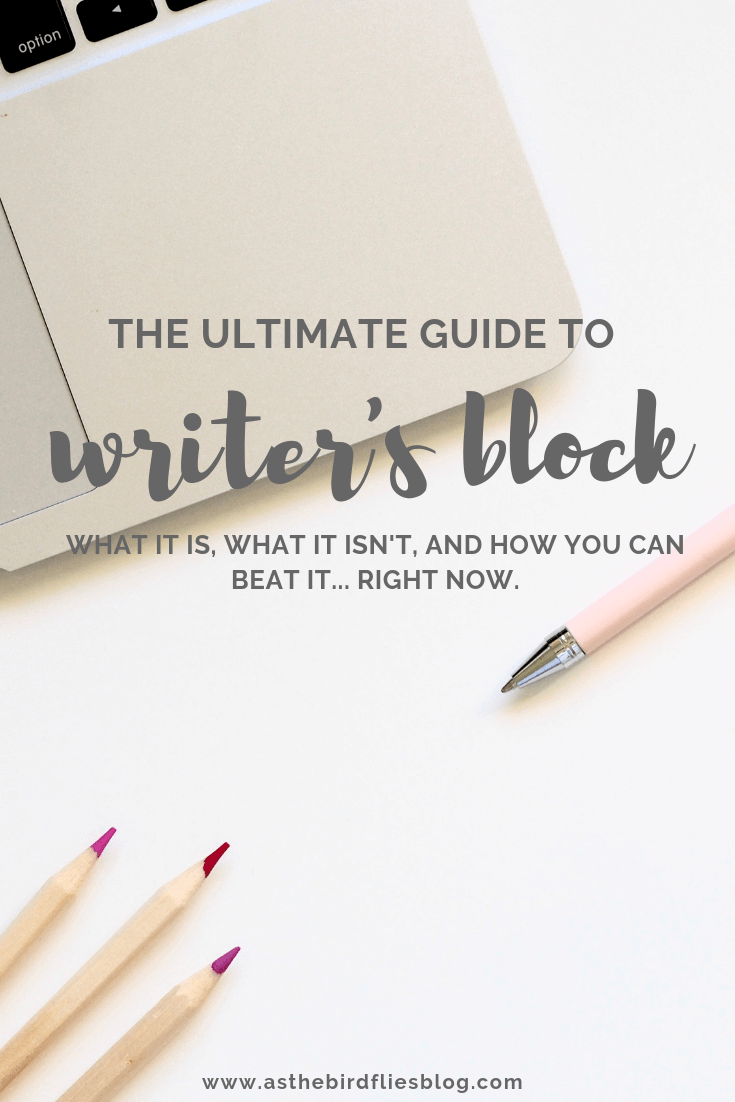
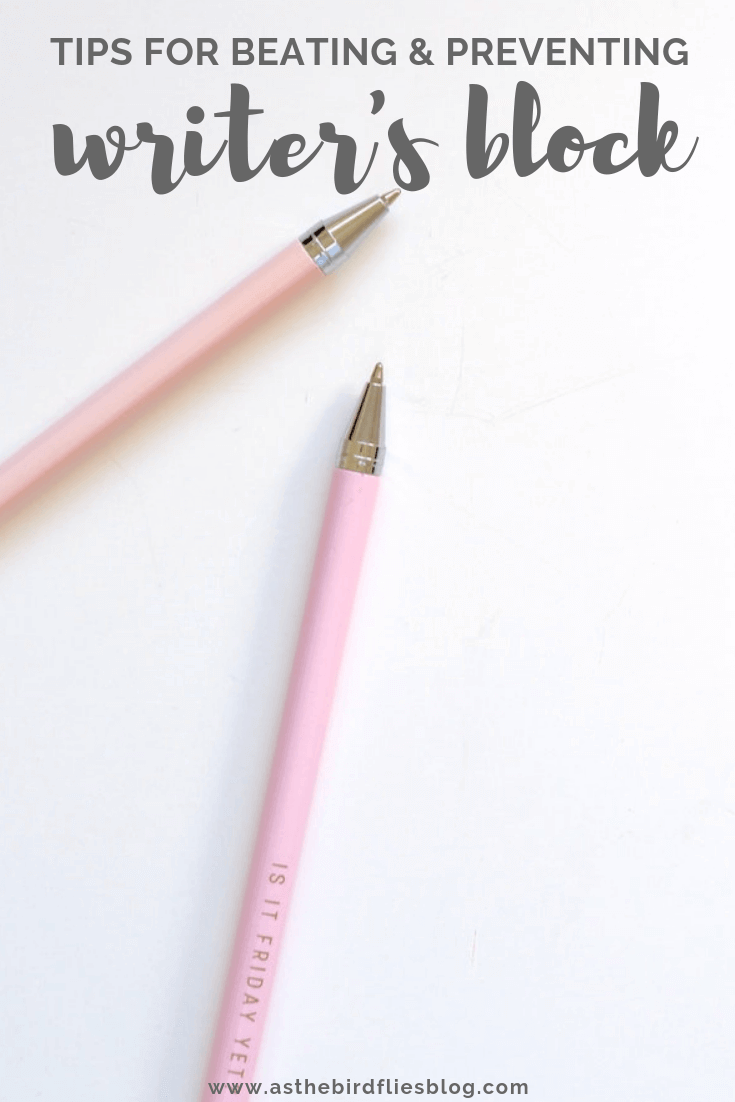
_x960.jpg?v=1)
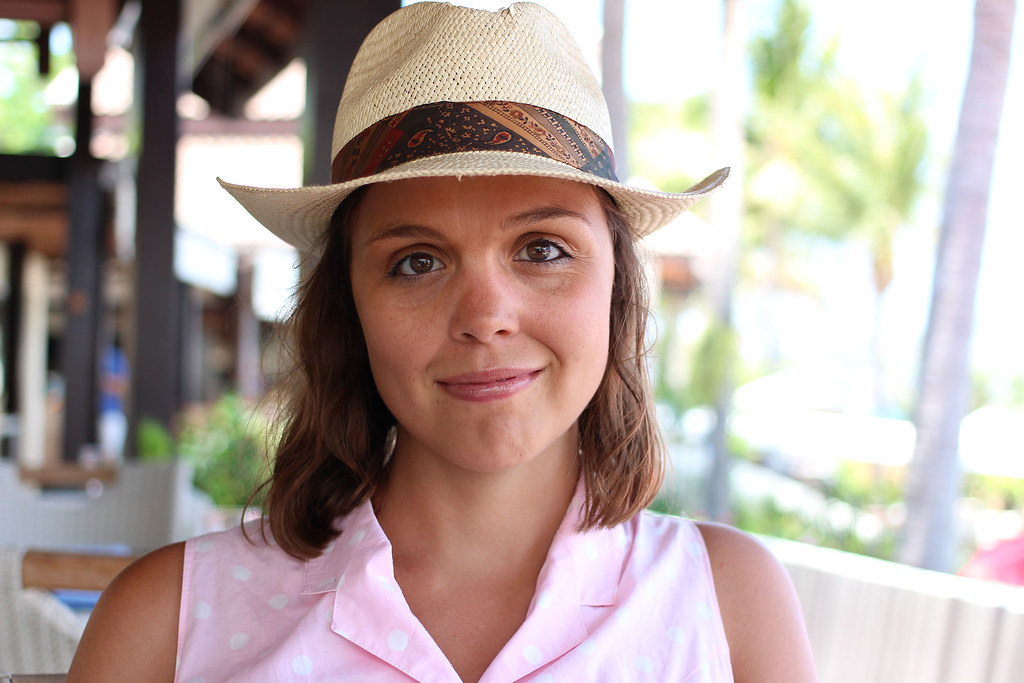
Frances M. Thompson
Find Frankie on Facebook, Twitter, Instagram, Pinterest, and Google+.
 On Writing: My Writing & Publishing Plans for 2023
On Writing: My Writing & Publishing Plans for 2023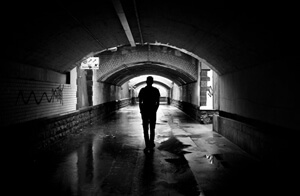 The Weaker Sex: Read the Prologue
The Weaker Sex: Read the Prologue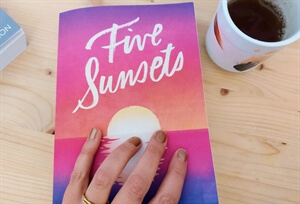 My Thoughts: The Life-Enhancing Joy of Romance Novels
My Thoughts: The Life-Enhancing Joy of Romance Novels All About My Next Book: Five Sunsets
All About My Next Book: Five Sunsets_x300.jpg?v=1) On Writing: The Year I Decided to Write for My Life
On Writing: The Year I Decided to Write for My Life About the Blog & Frankie
About the Blog & Frankie Welcome to My Amsterdam Travel Blog!
Welcome to My Amsterdam Travel Blog! Welcome to My Luxury Family Travel Blog!
Welcome to My Luxury Family Travel Blog! Welcome to My Writing Blog!
Welcome to My Writing Blog! Lover Mother Other: Poems - Out Now!
Lover Mother Other: Poems - Out Now! I Write Stories That Move You
I Write Stories That Move You Order WriteNOW Cards - Affirmation Cards for Writers
Order WriteNOW Cards - Affirmation Cards for Writers Work With Me
Work With Me